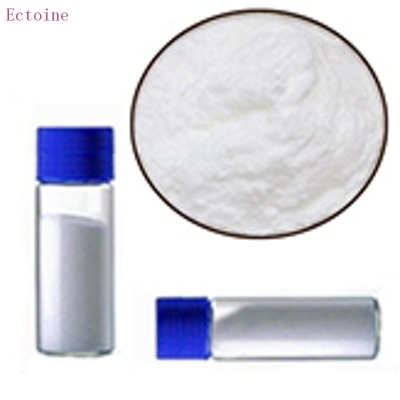-
Categories
-
Pharmaceutical Intermediates
-
Active Pharmaceutical Ingredients
-
Food Additives
- Industrial Coatings
- Agrochemicals
- Dyes and Pigments
- Surfactant
- Flavors and Fragrances
- Chemical Reagents
- Catalyst and Auxiliary
- Natural Products
- Inorganic Chemistry
-
Organic Chemistry
-
Biochemical Engineering
- Analytical Chemistry
- Cosmetic Ingredient
-
Pharmaceutical Intermediates
Promotion
ECHEMI Mall
Wholesale
Weekly Price
Exhibition
News
-
Trade Service
White sugar has long been the largest sweetener ingredient used in the beverage and food industry.
because white sugar has unparalleled advantages, namely, pure sweet taste, no odor residue after eating mouth and so on.
any artificial sweetener on the market (e.g. saccharin, aspartas sweetener, sweetener, ansai honey).
sucla sugar, etc.) and natural sweeteners from plants, such as stevia sugar, do not taste as good as white sugar.
But white sugar also has obvious disadvantages such as too high calories, eating too much is prone to fat and caries, and sugary beverages are prone to mold when stored at high temperatures.
the amount of white sugar in many beverage foods is limited.
the past 10 years, a new sweetener known as "low polysaccharide" has been widely used in beverage foods.
, also known as oligosaccharides, refers to low-molecular polymerized sugars that are made up of 2-10 glucose molecules connected by "glycoside bonds".
There are many types of lysate found so far, which are currently used in beverage foods, such as low-poly maltose, lysogene maltose, lysogene, polyfructose, soy polysaccharose, tag sugar, glycere and seaweed sugar.
Japanese researchers discovered in the 1980s that many polysaccharides were not actually absorbed and used by the human digestive tract, but could be used by gut microbes, especially probiotics such as Bifidobacteria.
probiotics are an excellent health helper in the human body, it can maintain the normal plexus structure in the intestines, to prevent germs (pathogenic bacteria) caused by various intestinal diseases such as diarrhea and bowel cancer and so on.
Western medical researchers confirmed decades ago that these elderly people living in the Caucasus and the mountains of Bulgaria had more than 90 per cent of Bifidobacteria in their gut plexus.
can be seen that Bifidobacteria is a long-lived microorganism.
american scholars recently reported that 90 percent of human immunity comes from the gut.
result, a causal relationship between intestinal health and human health can be seen.
after finding out the causal relationship between Bifidobacteria and longevity, foreign manufacturers began to use polysaccharide sweeteners in place of sugar or other sweeteners in the production of beverage foods in order to improve the healthy performance of their products.
E.g. Japan, France, the Netherlands, Denmark and other large dairy countries first added low-poly maltose and lysogene maltose and chrysanthemum sugar (Note: chrysanthemum is a natural lysomal from chrysanthemum, non-"stevia" chrysanthemum sugar) and other low-polysaccharide raw materials added to fermented yogurt, thereby increasing the survival of probiotics such as lactobacillus or Bifidobacteria in yogurt.
results from scholars in Japan and other countries show that these probiotics can only be produced well on lysict media.
there are no accurate statistics, according to foreign food industry experts estimate that the world's annual consumption of only yogurt as a sweetener of low polysaccharides as a hundred thousand tons.
varieties are mainly lysum fructose, low-poly maltose and lysoicose and so on.
not only used in dairy products such as yogurt, but also in other beverage products in recent years.
, such as the U.S. market's most popular variety of fruit juice drinks are added to the low-polyfructose, low-poly-wood sugar and low-polysort maltose and other low-polysaccharide sweeteners.
, according to the manufacturer, the addition of polysaccharies to fruit juice drinks can greatly improve the health function of the product.
such as strengthening the body's immunity, reducing the amount of fat and cholesterol in the blood, and improving intestinal health.
addition of low-polycalcose can enable beverage products to achieve "high cellulose, low-calorie", increase the number of Bifidobacteria in the intestines and a variety of health functions.
japanese manufacturers have launched a new type of low-polysaccharose product, Trehalose, in recent years.
the product is white crystallization, is made up of two glucose molecules connected, low sweetness, because it was first extracted from seaweed, so it is called seaweed sugar.
actually contain seaweed sugar in many plants.
most of the seaweed sugars currently used in beverage foods are artificially produced (enzyme conversion) products because the cost of extracting seaweed sugars from plant sources is too high.
According to the latest reports from abroad, of all the lysosaccharine products, only seaweed sugars have extraordinary therapeutic effects such as anti-cell hypoxia, improvement and regulation of cell membrane function, treatment of severe muscle weakness and prevention of Alzheimer's disease (Alzheimer's disease) and so on.
, seaweed sugar is one of the finest health food additives ever found.
because of the above-mentioned health effects of seaweed sugar, there are already many beverage products in the U.S. and European markets, as well as chocolate and candy cookies, such as added seaweed sugar sweeteners.
the introduction of sports drinks added seaweed sugar, can reduce the athletes" high insulin blood phenomenon and promote the body's high energy absorption.
add seaweed sugar to a refreshing beverage instead of white sugar can significantly improve the taste of the product, resist tooth decay, and prevent common discomforts such as sticky mouth after drinking.
Japan and the United States in the 1990s have developed and marketed a new type of blood sugar-lowering products - Tagatose.
according to the introduction of tag sugar sweetness and white sugar is very close to the taste is also good, but the calories are very low, such as tag sugar instead of sugar used in beverage products not only will not make consumers after eating blood sugar rise, but also can lower blood sugar, so it belongs to a natural sugar-lowering sweetener.
sugar is particularly beneficial in patients with high blood sugar.
because of the current surge in the number of hyperglycemia patients in the United States and Japan, and the large number of people with diabetes, tag sugar is widely used in beverage foods in Japan and the United States.
and tag sugar processing performance is extremely excellent, not only soluble in water, but also stable performance, suitable for different acidity and alkalinity of food and beverage as a sweetener.
is now used as a sweetener in a variety of beverage products, including fruit juices, fruit juices, dairy products, carbonated beverages and other beverages.
It is understood that in Japan and the United States tag sugar as a novel "healthy sweetener" has been widely used in food and beverage, annual sales have already exceeded 20,000 tons, and the once popular beverage industry aspartas sweet and other artificial sweetener sales are declining year by year.
Other promising beverage products applicable to low polysaccharide sweetener products are: 1. Soybean polysaccharides, the product is currently mainly from soybean processing by-products, according to the introduction of soybean polysaccharides can reduce blood lipids and promote the number of probiotics such as Bifidobacteria in the intestine.
added as a sweetener to beverage products such as sports drinks, fruit juices, yogurts and refreshing and powdered beverages can improve the health effects of the latter.
2. Chamru polysaccharides, mainly from the extract of plant chrysanthemum and magic taro powder, are now synthetic glyceride products.
the same time, ganucleose can improve the permeability of cells and capillaries and promote waste excretion.
sugar has been used in some beverage products, but not on a large scale.
3. Low polycrysty, the product has a special cool taste, so it is ideal for use as a sweetener in beverages (especially refreshing beverage products).
recently, according to foreign medical media reports, lysoptery also has some pharmacological effects, such as the prevention and treatment of otitis media and anti-caries and so on.
foods with low polyglycoic are particularly suitable for children or elderly consumers because of their significant health effects.
, polysaccharides have been widely used in foreign countries as the main sweetener in various beverage and food products to replace white sugar and artificial sweeteners and other products.
the production and application of polysaccharose in China has just started, there is a huge gap between the number of LYG product development varieties and the application of beverages compared with developed countries.
At present, the development momentum of LYG in the international market is very strong, China should increase the development and development of LYG, the use of China's rich LYS resources (such as soybean LYG has not yet been large-scale development and utilization.
Salgy wasted, it's a pity) chrysanthemum and magic taro polysaccharose and other low-polysaccharose resources, in short, the development of low-polysaccharose in the beverage industry's new application is a good thing for the country and the people.







